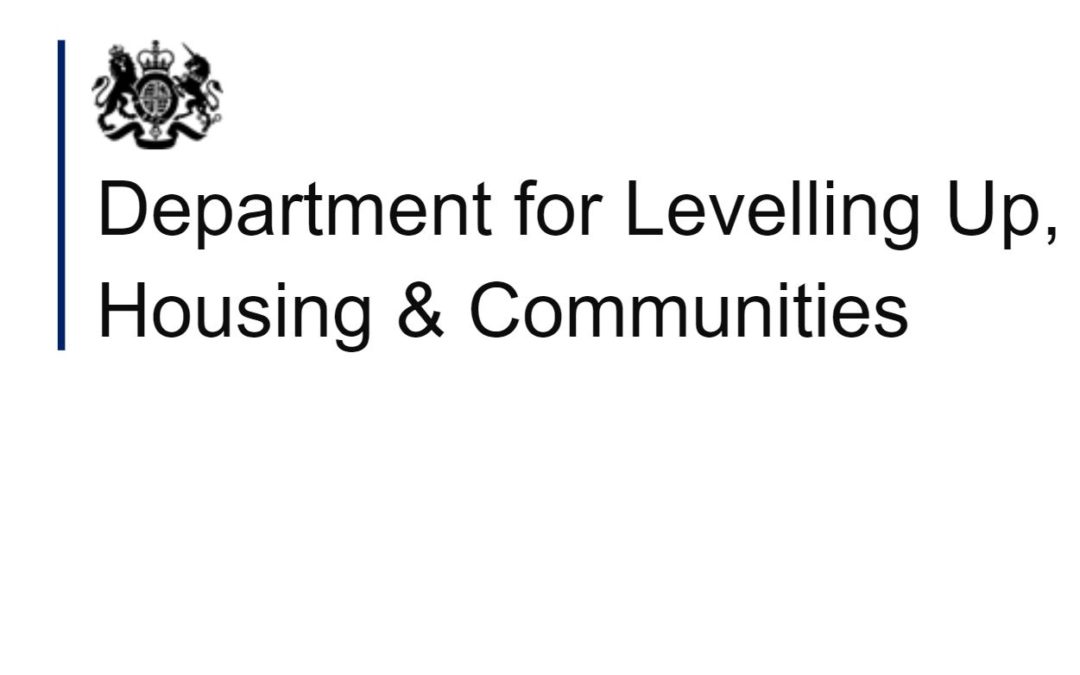New buildings in England will have to produce significantly less CO2 under new rules announced by the government to help the country move towards net zero.
Under the new regulations, CO2 emissions from new build homes must be around 30% lower than current standards and emissions from other new buildings, including offices and shops, must be reduced by 27%.
Heating and powering buildings currently makes up 40% of the UK’s total energy use.
Installing low carbon technology, such as solar panels and heat pumps, and using materials in a more energy efficient way to keep in heat will help cut emissions – lowering the cost of energy bills for families and helping deliver the UK’s climate change ambitions.
All new residential buildings, including homes, care homes, student accommodation and children’s homes, must also be designed to reduce overheating, making sure they are fit for the future and protect the most vulnerable people. Improvements to ventilation will also be introduced to support the safety of residents in newly-built homes and to prevent the spread of airborne viruses in new non-residential buildings.
The changes announced today to the government’s Building Regulations, which set the standards in England for the design, construction and alteration of buildings, follow a public consultation and will come into effect from June 2022.
They will raise standards and are an important step towards a cleaner greener built environment, paving the way for the Future Homes and Buildings Standard in 2025, which will mean all future homes are net zero ready and will not need retrofitting.
Housing Minister Eddie Hughes said:
Climate change is the greatest threat we face and we must act to protect our precious planet for future generations.
The government is doing everything it can to deliver net zero and slashing CO2 emissions from homes and buildings is vital to achieving this commitment.
The changes will significantly improve the energy efficiency of the buildings where we live, work and spend our free time and are an important step on our country’s journey towards a cleaner, greener built environment.
The new regulations come alongside £6.6 billion of direct investment into improving the energy efficiency of buildings during this Parliament. The Social Housing Decarbonisation Fund, Local Authority Delivery scheme and Home Upgrade Grant scheme make grants available to low-income households for insulation, solar panels, heat pumps and other efficiency and decarbonisation measures.
Last week, a further £400 million of funding was announced for more than 200 local authority areas as part of a new Sustainable Warmth Competition.
Commenting on the changes, FIS CEO Iain McIlwee stated:
“This is more evidence of the intent of this Government to ensure Net Zero is at the heart of policy making and we are seeing similar in Wales, Scotland and Northern Ireland. We have seen the headlines before, but this time they are being backed by cold, hard regulation. To meet the challenges and opportunities this creates we have, in 2022 appointed a Sustainability Champion and have an engaged and active Sustainability Leadership Group. We will work to keep our members abreast of technology through our magazine SpecFinish and will be running bi-monthly meetings of our sustainability working group next year. You can keep up-to-date on the sustainability hub on the FIS website.”
Further information
Alongside amendments to the Building Regulations, we have published 5 new Approved Documents:
- Approved Document L, volume 1: dwellings
- Approved Document L, volume 2: buildings other than dwellings
- Approved Document F, volume 1: dwellings
- Approved Document F, volume 2: buildings other than dwellings
- and an entirely new Approved Document O covering overheating
There will be a 6 month period before the new regulations come into force on 15 June 2022. Transitional arrangements are in place which mean that if a building notice, initial notice, or full plans for building work are submitted to a local authority before 15 June 2022, then provided the building work commences by 15 June 2023, work on that individual building is permitted to continue under the previous standards.
As well as setting out measures for the 2021 uplift to the Building Regulations, the government response to the Future Buildings Standard consultation also sets out plans for the implementation of the Future Buildings Standard from 2025. This includes plans to start a full technical consultation on the FBS in 2025.

